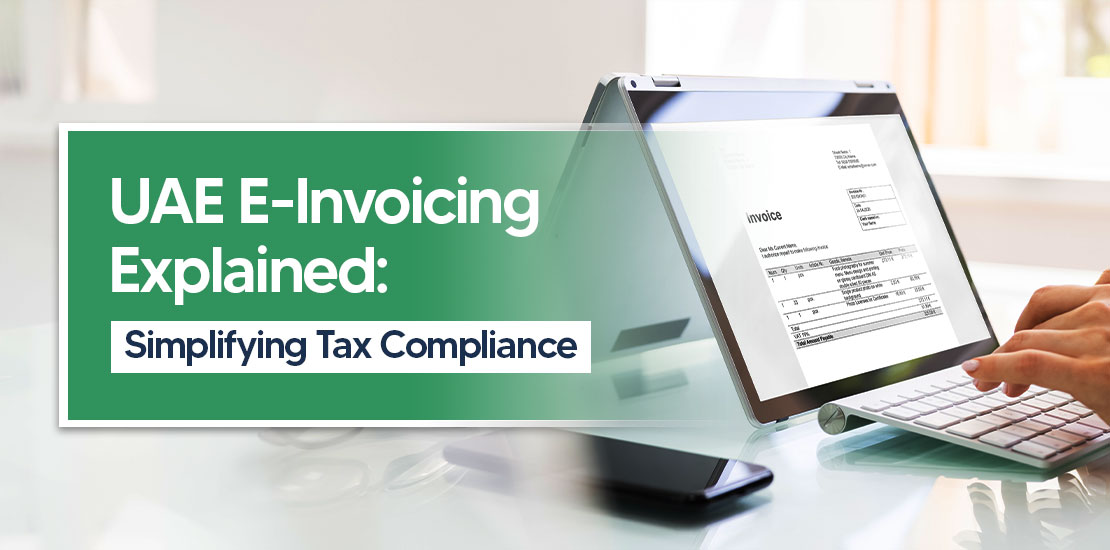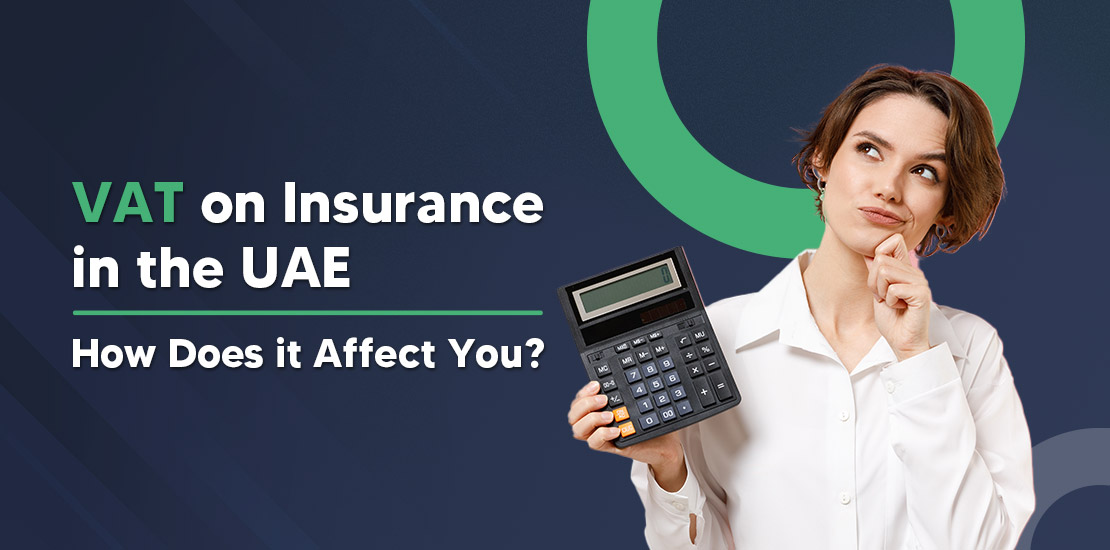Table of Contents
- What is E-Invoicing in UAE?
- E-Invoicing in UAE Timeline
- Recent Update on E-Invoicing UAE
- UAE Adopts 5-Corner PEPPOL Model for E-Invoicing
- E-Invoicing Framework in UAE
- Scope of e-Invoicing in UAE
- Implementing Authority for UAE e-Billing System
- What is the required format for e-invoices in the UAE?
- Legal and Background for E-Invoicing in the UAE
- Steps to Prepare Your Business for E-Invoicing in the UAE
- How Shuraa Tax Can Help Your Business with e-Invoicing in UAE
- Challenges of E-Invoicing for Businesses in UAE
- Conclusion
- FAQs
In today’s digital era, businesses worldwide are transitioning to electronic invoicing (e-invoicing) to streamline operations and ensure compliance with evolving tax regulations. The United Arab Emirates (UAE) is no exception. e invoicing UAE aims to modernise invoicing, reduce fraud, and enhance tax transparency.
With a structured e-billing system, companies, whether small business owners or large corporations, can automate invoicing, minimise errors, and improve efficiency.
Understanding UAE e-invoicing is crucial to complying with the Federal Tax Authority (FTA). This guide will provide an in-depth look into E-invoicing in the UAE, covering everything from its timeline and legal background to implementation, challenges, and expert assistance.
What is E-Invoicing in UAE?
E invoicing UAE refers to the electronic generation, authentication, and exchange of invoices in a standardised digital format. Unlike traditional paper-based invoices, E-invoices ensure a seamless, automated process that enhances tax compliance and reduces manual intervention.
The UAE E-invoicing system follows a structured approach where businesses generate invoices in a predefined format, ensuring transparency and efficiency in financial transactions. This system helps businesses:
- Maintain accurate records
- Streamline financial operations
- Reduce invoice processing times
- Meet the regulatory requirements set by the Federal Tax Authority (FTA)
Businesses can improve cash flow and operational efficiency by eliminating human errors and automating invoicing processes.
E-Invoicing in UAE Timeline
The UAE government has been progressively moving towards digital transformation in taxation. Below is a timeline highlighting key milestones in the UAE E-invoicing journey:
- 2021: Initial discussions and framework planning for implementing E-invoicing UAE began.
- 2022: The UAE explored adopting structured E-invoicing regulations aligned with global best practices.
- 2023: The Federal Tax Authority (FTA) announced a phased implementation of E-invoicing in the UAE’s business requirements.
- 2024 & Beyond: Full-scale adoption and mandatory compliance expected for all taxable entities.
Businesses must stay informed about these phases to ensure timely compliance and avoid penalties.
Recent Update on E-Invoicing UAE
The latest update on UAE e-invoicing includes the Federal Tax Authority (FTA) ‘s announcement of the gradual implementation of E-invoicing requirements. Businesses must comply with specific E-invoicing guidelines, including the format, authentication methods, and reporting standards set by the FTA.
The UAE is also working towards integrating E-invoicing with VAT reporting systems to enhance tax compliance and improve revenue collection efficiency. The transition towards a mandatory E-invoicing system demonstrates the UAE’s commitment to financial transparency and technological innovation in taxation.
UAE Adopts 5-Corner PEPPOL Model for E-Invoicing
The UAE has adopted the 5-Corner PEPPOL model for e-invoicing, aligning with global standards to enhance tax compliance and digital transformation. This model facilitates the secure exchange of invoices between businesses and the Federal Tax Authority (FTA), ensuring real-time tax reporting. The five key components include the supplier, sender access point (ASP), receiver ASP, buyer, and the FTA data platform.
The UAE’s e-invoicing mandate will be phased in by July 2026, initially applying to VAT-registered businesses engaged in B2B and B2G transactions. This move will reduce invoice processing costs, improve compliance, and enable seamless cross-border transactions.
E-Invoicing Framework in UAE
The UAE E-invoicing framework is structured to facilitate seamless digital transactions between businesses and the FTA. The framework consists of:
- Mandatory digital invoicing for taxable entities to ensure compliance
- Standardised invoice formats to maintain uniformity across industries
- Electronic authentication and secure storage of invoices to prevent tampering or loss
- Integration with VAT reporting and tax collection systems
This structured framework reduces tax evasion, enhances financial transparency, and automates tax-related documentation. By adopting e invoicing UAE, businesses can ensure regulatory compliance while optimising their financial processes.
Scope of e-Invoicing in UAE
E-invoicing applies to all businesses operating within the UAE’s tax framework, including:
- VAT-registered businesses
- Suppliers of goods and services
- Entities involved in cross-border transactions
- Businesses engaged in e-commerce
- Freelancers and self-employed professionals are subject to VAT
As the UAE moves towards an utterly digitised tax system, compliance with UAE E-invoicing regulations will become necessary for all taxable businesses.
Implementing Authority for UAE e-Billing System
The Federal Tax Authority (FTA) is the primary governing body overseeing E invoicing UAE compliance. The FTA ensures:
- Proper implementation of UAE e-invoicing standards
- Adherence to VAT regulations
- Digital authentication and security measures to prevent fraud
- Real-time tax reporting and transparency
What is the required format for e-invoices in the UAE?
E-invoices in the UAE must follow a structured format, ensuring consistency and compliance. The key elements include:
- Unique Invoice Reference Number (IRN)
- Supplier & buyer details, including VAT registration numbers
- Transaction date & invoice issue date
- Breakdown of VAT charges, including tax rates and amounts
- QR Code for authentication and verification by authorities
- Digital signature or secure electronic stamp
This standardized format ensures that UAE e-invoicing remains transparent and easily verifiable by tax authorities, preventing tax evasion and fraud.
Legal and Background for E-Invoicing in the UAE
The legal framework for E-invoicing in the UAE is built upon VAT laws and digital tax initiatives. The FTA’s decision to implement UAE e-invoicing aligns with global tax trends aimed at:
- Reducing tax fraud and ensuring financial transparency
- Complying with VAT laws and preventing fraudulent transactions
- Enhancing the efficiency of tax collection and enforcement
- Aligning with international best practices in digital taxation
Failure to comply with E-invoicing regulations in the UAE may result in penalties, making it essential for businesses to stay updated with legal requirements.
Steps to Prepare Your Business for E-Invoicing in the UAE
To comply with UAE E-invoicing regulations, businesses should:
- Assess Readiness: Evaluate existing invoicing processes and determine required changes.
- Adopt Digital Invoicing Software: Implement an FTA-approved e invoicing UAE system.
- Train Employees: Ensure staff are well-trained in UAE e-invoicing requirements and procedures.
- Integrate with VAT Compliance Systems: Align e-invoicing UAE processes with VAT reporting.
- Monitor Compliance: Regularly check for updates from the FTA to ensure ongoing compliance.
- Test and Validate: Conduct test runs before full implementation to ensure your system generates invoices correctly.
How Shuraa Tax Can Help Your Business with e-Invoicing in UAE
At Shuraa Tax, we specialise in helping businesses seamlessly transition to E-invoicing in the UAE. Our team offers:
- Expert consultation on UAE E-invoicing compliance
- Implementation of automated E-invoicing UAE solutions
- VAT compliance guidance and support
- Integration with tax and accounting systems
- Training and support for staff and financial teams
Whether you are a startup or an established business, our experts ensure that your invoicing system aligns with the latest FTA regulations on E-invoicing UAE.
Challenges of E-Invoicing for Businesses in UAE
While UAE E-invoicing offers numerous benefits, businesses may face challenges such as:
- Initial implementation costs for software and training
- Technical complexities in integrating new systems
- Adapting to regulatory changes and compliance updates
- Ensuring data security and avoiding cyber threats
Overcoming these challenges requires expert guidance and the proper technological support.
Conclusion
E invoicing UAE is a significant step towards digital transformation, ensuring tax compliance, reducing fraud, and improving business efficiency. As the FTA continues implementing structured UAE E-invoicing regulations, businesses must stay updated and adopt the right solutions to ensure seamless compliance.
For expert assistance in implementing UAE E-invoicing solutions, contact Shuraa Tax today:
📞 Call: +(971) 44081900
💬 WhatsApp: +(971) 508912062
📧 Email: info@shuraatax.com
FAQs
1. Is e-invoicing required in the UAE?
E-invoicing is not mandatory in the UAE, but businesses are encouraged to adopt it for better compliance and efficiency.
2. What should a tax invoice include in the UAE?
A UAE tax invoice must include the supplier’s and buyer’s names, TRN, invoice date, VAT amount, and total payable amount.
3. What are the advantages of using e-invoicing in the UAE?
E-invoicing enhances accuracy, speeds up transactions, reduces errors, and ensures compliance with VAT regulations.
4. Why is digital billing crucial in the UAE?
Digital billing simplifies tax reporting, reduces paperwork, and helps businesses comply with VAT regulations efficiently.
5. What is Peppol FTA in the UAE?
Peppol FTA (Federal Tax Authority) is a global e-invoicing network that standardises invoice exchange between businesses and tax authorities in the UAE.
6. How does Peppol e-invoicing benefit UAE businesses?
Peppol e-invoicing ensures secure, automated, seamless transactions while improving tax compliance and efficiency.
7. How can companies adopt Peppol e-invoicing in the UAE?
Businesses can implement Peppol e-invoicing by partnering with an accredited service provider and integrating their invoicing system with the Peppol network.












